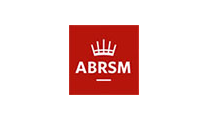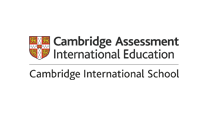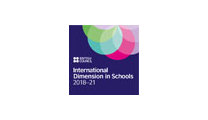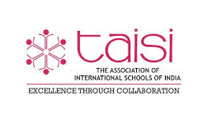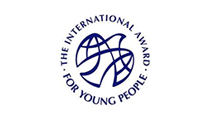Maria Montessori was the first woman in Italy to receive a medical degree. She worked in the fields of psychiatry, education and anthropology. Her main contributions to the work of those of us raising and educating children are in these areas:
- Preparing the most natural and life-supporting environments for the child
- Observing the child living freely in this environment
- Continually adapting the environment in order that the child may fulfil his or her greatest potential, physically, mentally, emotionally, and spiritually.
The first Montessori school opened in 1906 in Rome and thereafter Montessori schools spread in all parts of the world.
During World War II Dr. Montessori was forced into exile from Italy because of her anti fascist views and lived and worked in India. It was here that she developed her work Education for Peace, and developed many of the ideas taught in her training courses today. She was twice nominated for the Nobel Peace Prize.
Many Indians, especially many leaders of the national movement were keenly interested in the Montessori approach to education. The most significant of these was Mahatma Gandhi. Gandhiji visited Montessori schools in Rome, and always showed interest in Montessori principles.
An Over view of the education
Montessori education combines freedom with responsibility, a more active role for the children in their own learning, high standards of academic excellence, social awareness and moral development, and a vision of humanity and its accomplishments that implies children to take their place in their communities, when the time comes as responsible, contributing adults.
The success of this education is based on the understanding, that from the beginning, the Childs education must be viewed in its entirety. Goals and methods at each age level must fit together to form a cohesive whole, from birth to adulthood.
The planes of development [0-6; 6-12; 12-18; 18-24] were and continue to be a unique discovery of Montessori's educational work.
Teaching Method:
There are no text books, and seldom will two or more children be studying the same thing at the same time. Children learn directly from the environment, and from other children—rather than from the teacher. The teacher is trained to teach one child at a time, with a few small groups and almost no lessons given to the whole class. She is facile in the basic lessons of math, language, the arts and sciences, and in guiding a child's research and exploration, capitalizing on interests and excitement about a subject. Large groups occur only in the beginning of a new class, or in the beginning of the school year, and are phased out as the children gain independence. The child is scientifically observed, observations recorded and studied by the teacher. Children learn from what they are studying individually, but also from the amazing variety of work that is going on around them during the day.
Montessori Teacher
The teacher is a guide, allowing experimentation, discovery and analysis without adult intervention. A Montessori teacher is passive and provides the child with assistance and guidance. The teacher has faith in the child's inner powers of construction and provides the child with opportunities that are vital to them, while at the same time watching the spontaneous interests and allowing the child to pursue them.
Free choice is a major principle, where the child is allowed to select the task they wish to accomplish, and therefore will be totally involved and amazingly in a state of concentration. As the children learn what is of interest to them at a particular stage they are willing and thus there is little need for discipline. If a child learns what the teacher expects them to learn there is not the same inner motivation. The teacher prepares an appropriate environment and watches for signs from the children and reacts accordingly.
The Teacher is trained to concentrate on the development of not only the academic skills but more importantly the life skills of:
- Independent working
- Concentration
- Will
- Working habit
- Imagination
- Free choice: Self- respect
- Respect for others
- Cooperation
- Non competitiveness
- Respect for the environment
- Self control and intrinsic discipline
- Conscious choice
- Peace table
- Identification with others
Montessori Environment
Emphasis on the environment is a primary element in our method. It has to be designed to meet needs for self-construction and to reveal student’s personality and growth pattern to us.
The characteristics of the environment are based on the needs of the children and provide a structured environment based on physical, intellectual, and social and emotional characteristics. Montessori important concepts of environment are:
- Freedom
- Structure and order
- Reality based on nature
- Beauty and atmosphere
- The means of development (apparatus. Intellectual environment)
- Developmental activities.
- Availability of community life (Social environment)
Peace Education
This is implicit in the Montessori curriculum and its material at every level. At the preschool level [3-6 years], the children are exposed to the continents, peoples of the world at a sensorial level, thus providing the basis for a global view of life and humanity’s part in it.
At the elementary stage [6 to 12 years] the community of the world is studied in depth from a historical perspective, with the help of timelines to the understanding that all humans have the same fundamental needs and that the realization of these needs vary according to the potentialities present in each given geographical environment and historical era.
At the [12-18] level, students who now are in a social, moral and ethical frame of mind are ready to explore the larger community and begin to find their own place in it. In all such activities, the goal is to create experiences of conscious, on-competitive cooperation.
The Cosmic Lessons
It is this vision of an indivisible unity made up of energy, of sky, of rocks, of water, of life, of humans as adults and humans as children that lends a sense of the cosmic to Montessori’s thinking. This cosmic sense pervades all of Montessori’s work, both her thinking and her educational approach for all of the different planes and stages of development of the human being: from birth without violence to the Infant Community, to the Casa dei Bambini, to the elementary school, to the community for adolescents.
Parent Education
We have realized today that the role of the family is not complete and neither are the schools if the parents and teachers are working at Tandem. They both need to share the same philosophy and practice of values if indeed “Peace” is to be a life long lesson. Montessori promotes a Parent-school community where sharing and active involvement in the Childs development is shared by all.

